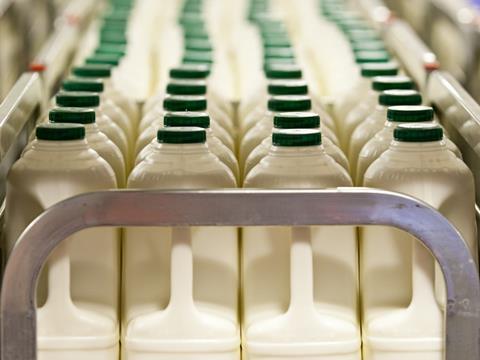
Top story
Food inflation has slowed for the second consecutive month but the UK’s headline rate remained unchanged, according to new figures this morning.
The consumer prices index revealed prices rose by 8.7% in the year to May, the same rate as the previous month and higher than expected by City economists, the Office for National Statistics revealed.
Prices for food and non-alcoholic drinks rose last month but by less than a year ago, up 18.4% in the 12 months to May. The ONS highlighted milk, cheese and eggs as the biggest drivers to the slowing rate in food, but fish prices continued to race higher, particularly canned tuna.
Alcoholic beverages and tobacco prices jumped by 9.3% in May, up from 9.1% in the prior month.
BRC chief executive Helen Dickinson said it was “a really positive sign” that food inflation had fallen for the second month in a row, the first time it had happened since the Ukraine war began.
“While some prices continue to rise, we are now seeing regular news reports of falling prices on many essential products, such as loo rolls and vegetable oil,” she added. “It has been good to see larger drops in inflation rates for flour, milk and eggs as retailers continue to invest heavily in lower prices for the future and locking the price of many essentials, helping the UK to deliver some of the cheapest groceries in Europe.
“Elsewhere, consumers will find themselves under pressure from increased health and communication costs, as inflation rates in both categories rose in May.
“With inflation generally trending down, it is vital that Government does not introduce new policies that would add costs to retailers. Government should consider how current timelines for a deposit return scheme and reformed packaging levy could limit the ability of inflation to fall. This is on top of a new Windsor framework labelling, and upcoming increases to business rates.”
Food and Drink Federation CEO Karen Betts also called the slowdown “encouraging”.
“However, we know too how concerned households remain about the costs of the weekly shop, and food and drink manufacturers are continuing to drive down costs wherever they can. But the fact remains that the cost of ingredients, energy, labour, packaging, logistics and other inputs remain stubbornly high, and still some way above pre-pandemic levels.
“High input costs and a challenging regulatory environment are taking their toll on the sector too, with insolvencies on the rise, now more than double their pre-pandemic level for our sector, and overall output shrinking. Food and drink manufacturers are having to cancel or pause planned investments, restructure their businesses, leave vacancies unfilled, and reduce production - all of which is going to have a negative impact on future growth. We’re urging the government to work with us to mitigate these issues – to simplify and reduce the costs of regulation and to help create the conditions for growth – to help avoid long term scarring in our sector.”
The falling price of fuel was the biggest contributor in keeping overall inflation down in May, with fuel prices down 13.1% in May, on top of a 8.9% in April.
Average petrol and diesel prices for May stodd at 144.p and 154.6p per litre repsectively, compared with 165.9p and 179.7p per litre last year.
ONS chief economist Grant Fitzner said: “After last month’s fall, annual inflation was little changed in May and remains at a historically high level.
“The cost of airfares rose by more than a year ago and is at a higher level than usual for May. Rising prices for second-hand cars, live music events and computer games also contributed to inflation remaining high.
“These were offset by a fall in the cost of petrol. Food price inflation remains high, but the rate has eased slightly this month with costs rising more slowly than this time last year.”
Morning story
THG is expecting a significant increase in first-half profitability after a “strong” second quarter, the embattled group said in a trading update this morning, ahead of its AGM.
Adjusted EBITDA is forecast in the range of £44m to £47m in the half, with guidance unchanged for the full year.
THG Nutrition had “a particularly strong” start to the year, with the decision to keep prices competitive in the face of inflation “now paying dividends”.
THG said commodity prices continued to ease, with further margin benefits expected in the second half of 2023.
The online retail platforms in the THG Beauty division focussed on profitable sales in markets where the group’s localised infrastructure could deliver economies of scale.
The trading update also flagged that founder and CEO Matthew Moulding had cancelled the special share held by him.
In a separate announcement, the group flagged the appointment of Helen Jones to the board as an non-executive director.
Jones currently serves as the chair of the remuneration committee at Premier Foods, Virgin Wines and Fuller, Smith and Turner.
She also is a senior independent director at Halfords and stepped down as vice chair of Ben & Jerry’s independent board of directors in the US.
Iain McDonald has decided to step down from the remuneration committee to “focus on his other THG commitments”, primarily as chair of the sustainability committee and member of the nomination committee.
THG chairman Charles Allen said: “I would like to welcome Helen to the business. She brings with her a successful career across the fmcg industry, with a notable reputation for delivering results and leadership in cultural change programmes. Moreover, demonstrable skills as an experienced committee chair and senior independent director of listed and FTSE companies.
“This appointment reinforces the board’s commitment to improve its corporate governance and continually enhance its composition.
“I, and the rest of the board, look forward to benefitting from Helen’s invaluable experience from both executive and non-executive perspectives.”
Jones added: “I am delighted to be joining a business such as THG, which boasts a great customer proposition and a strong pedigree of scaling brands internationally. The group is on an exciting journey, and I am pleased to become a part of that alongside an experienced board of directors.”
Vimto owner Nichols has appointed David Taylor to the board as interim chief financial officer, with immediate effect.
He brings “a wealth of consumer-focused public company experience” to the board, having most recently been the CFO of Churchill China for more than 30 years, helping lead the potteries firm’s IPO in 1994.
Nichols said its search for a permanent CFO continued and the group would make further updates when appropriate.
Non-executive chair Liz McMeikan said: “I am delighted to welcome David to the Nichols board on an interim basis and look forward to working with him. David brings significant and relevant experience to the organisation while the board looks for a permanent group CFO.”
The FTSE 100 opened down 0.6% to 7,527.05pts as the City reacted to the worse-than-expected inflation figures.
Shares in THG jumped 6% to 77.3p as investors bought into the news of better profitability and Matthew Moulding gettig rid of his special share.
Other early risers included McBride, up 3.8% to 27.4p, and Greencore, up 2.2% to 77.5p.
Virgin Wines UK led the fallers, down 4.3% to 30.2p, while Deliveroo fell 2% to 102.4p and Glanbia slipped 1.5% to €13.46.
Yesterday in the City
The FTSE 100 dipped by 0.3% to 7,569.31pts yesterday.
Just Eat Takeaway fell 5.1% to 1,076p, Ocado was down 2.5% to 424p and Fever-Tree dropped 1.7% to 1,303p.
B&M, Bakkavor and Hotel Chocolat were among the risers, up 1.8% to 566.4p, 1.5% to 94.6p and 1.5% to 140p.

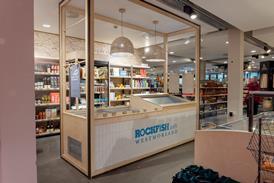
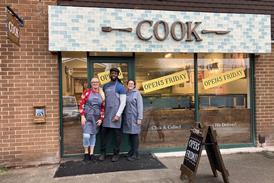
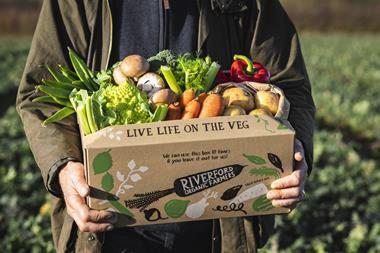
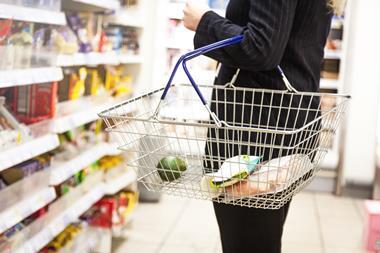
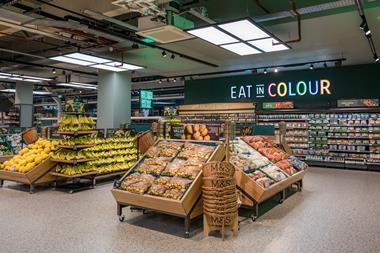
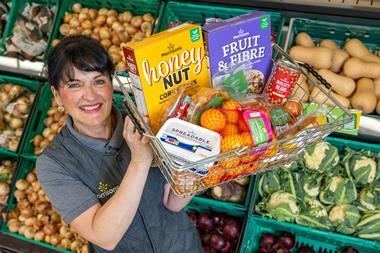
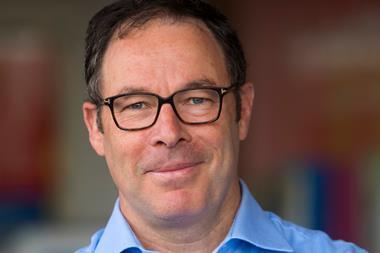
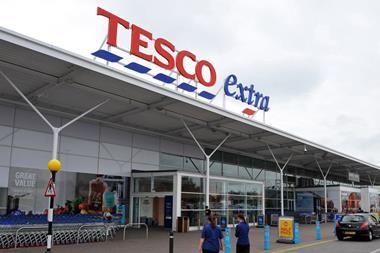
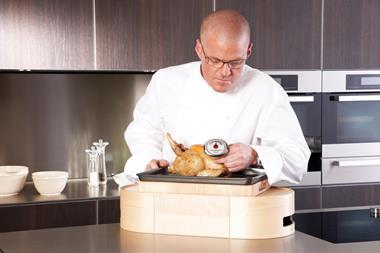
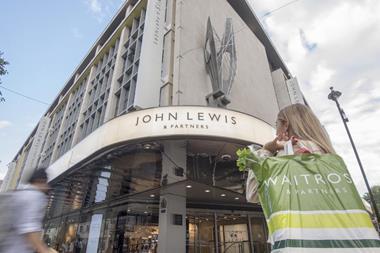

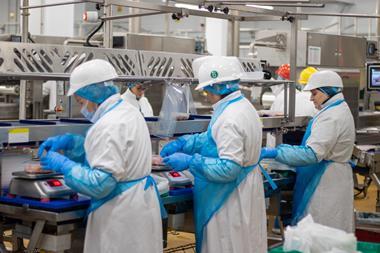
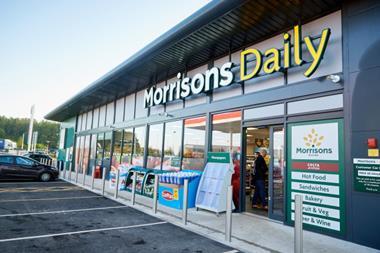
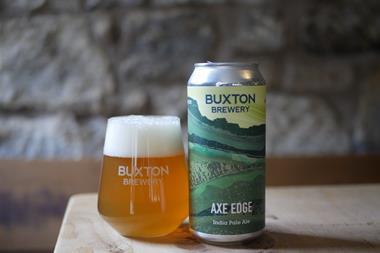
No comments yet